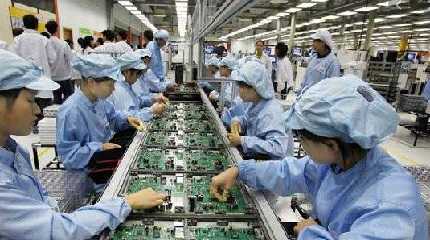
STUTTGART, Germany, June 9 (Xinhua) -- Amid a sluggish global economic recovery, German executives voiced their dedication to enhancing their market presence in China during a promotion event for the China International Import Expo (CIIE) held in Stuttgart.
German enterprises are leveraging the CIIE to align their development with the demands of the Chinese market, according to the executives at the event, which gathered about 150 Chinese and German officials, business representatives, and trade delegates.
"Since joining the CIIE in 2018, we have successfully introduced the concept of deep cleaning into the Chinese market and led the market positioning of several of our products, unlocking new opportunities," said Tobias Wahl, board chairman of the Hawk brand at Karcher Group, at the promotion event.
Germany's Karcher Group, a leader in the cleaning industry, has participated in the CIIE for six consecutive years. Over time, the expo has spurred Karcher to continuously boost its investments in China.
"In recent years, Karcher has maintained a double-digit growth in the Chinese market. Our cumulative investments in China have reached 2 billion yuan (276 million U.S. dollars), accelerating our transition from exhibitors to investors," said Wahl, adding that the group has expanded and optimized its factories and integrated high-quality industry resources to advance localization strategies.
He added that this year, the company will showcase many pioneering products, featuring green, intelligent, and innovative concepts, at the 7th CIIE.
Preparations for the 7th CIIE are well underway and German enterprises lead Europe in both the number of exhibitors and the exhibition space. Seventy-five companies have signed up, covering more than 26,000 square meters at the venue, according to Wu Zhengping, deputy director general of the China International Import Expo Bureau.
Currently, renowned German companies such as Siemens, Bayer, SAP, Mercedes-Benz, and Volkswagen have confirmed their participation at the event.
"Bayer deems the Chinese market pivotal within its global strategic landscape, with the import expo serving as a crucial conduit for Bayer to engage with the market dynamics, facilitate exchanges, and cultivate collaborations across various fronts," said Zhang Lei, vice president of communications at Bayer China.
"By committing early to the import expo, Bayer underscores its unwavering dedication and confidence in the Chinese market. We anticipate further leveraging its platform to expedite the realization of our innovative endeavors," said Zhang.
Walter Doring, chairman of the Academy of German Hidden Champions, highlighted China's remarkable achievements in development and innovation, which, he said, has opened up new cooperation prospects for Germany.
So far, over 90 percent of some 500 leading German enterprises have engaged in partnerships with China, said Doring, adding that collaboration with China is indispensable for any enterprise aiming to lead the global market.
In a survey conducted by the German Chamber of Commerce in China among German enterprises about their future prospects, most respondents believed that within the next five years, they will have a bright and prosperous future in the industry, according to Michael Schumann, chairman of the Board of the German Federal Association for Economic Development and Foreign Trade.
More than half of the companies surveyed are planning to expand their investment in China, Schumann said in an interview with Xinhua.
German companies have significantly increased their investments in China lately. According to China's Ministry of Commerce, German investment in China increased by 48 percent in the first quarter of this year.
In January, German luxury carmaker Audi AG launched pre-mass production at its first production base for purely electric vehicles in China.
In March, a Mercedes-Benz and BMW joint venture was established in Beijing, aiming to build at least 1,000 supercharging stations and around 7,000 high-power charging piles by 2026.
And in May, Volkswagen (China) Technology Co. held a groundbreaking ceremony for its third-phase project in Hefei, capital of east China's Anhui Province.




